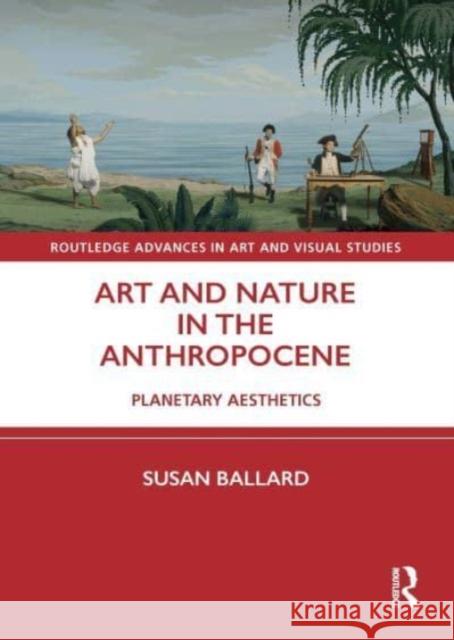Art and Nature in the Anthropocene: Planetary Aesthetics » książka
Art and Nature in the Anthropocene: Planetary Aesthetics
ISBN-13: 9780367710941 / Angielski / Miękka / 2023 / 180 str.
Art and Nature in the Anthropocene: Planetary Aesthetics
ISBN-13: 9780367710941 / Angielski / Miękka / 2023 / 180 str.
(netto: 195,06 VAT: 5%)
Najniższa cena z 30 dni: 191,37
ok. 16-18 dni roboczych.
Darmowa dostawa!
This book examines how contemporary artists have engaged with histories of nature, geology, and extinction within the context of the changing planet. Susan Ballard describes how artists challenge the categories of animal, mineral, and vegetable—turning to a multispecies order of relations that opens up a new vision of what it means to live within the Anthropocene. Considering the work of a broad range of artists including Francisco de Goya, J. M. W. Turner, Robert Smithson, Nancy Holt, Yhonnie Scarce, Joyce Campbell, Lisa Reihana, Katie Paterson, Taryn Simon, Susan Norrie, Moon Kyungwon and Jeon Joonho, Ken + Julia Yonetani, David Haines and Joyce Hinterding, Angela Tiatia, and Hito Steyerl and with a particular focus on artists from Australia and Aotearoa New Zealand, this book reveals the emergence of a planetary aesthetics that challenges fixed concepts of nature in the Anthropocene.The book will be of interest to scholars working in art history, visual culture, narrative nonfiction, digital and media art, and the environmental humanities.
This book examines how contemporary artists have engaged with histories of nature, geology, and extinction within the context of the changing planet. Susan Ballard describes how artists challenge the categories of animal, mineral, and vegetable—turning to a multispecies order of relations that opens up a new vision of what it means to live within the Anthropocene. Considering the work of a broad range of artists including Francisco de Goya, J. M. W. Turner, Robert Smithson, Nancy Holt, Yhonnie Scarce, Joyce Campbell, Lisa Reihana, Katie Paterson, Taryn Simon, Susan Norrie, Moon Kyungwon and Jeon Joonho, Ken + Julia Yonetani, David Haines and Joyce Hinterding, Angela Tiatia, and Hito Steyerl and with a particular focus on artists from Australia and Aotearoa New Zealand, this book reveals the emergence of a planetary aesthetics that challenges fixed concepts of nature in the Anthropocene.
The book will be of interest to scholars working in art history, visual culture, narrative nonfiction, digital and media art, and the environmental humanities.











